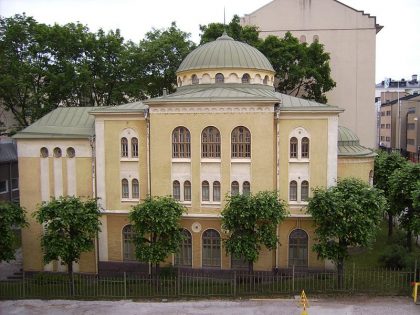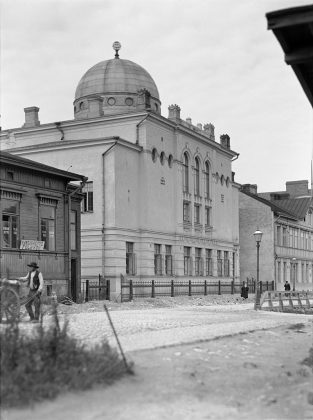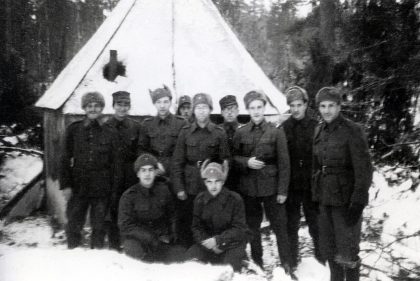
Finland was part of the Kingdom of Sweden until 1809. Thus, during Swedish rule, Jews were allowed to live in only three cities, none of which was on the territory of Finland. Following the war between Sweden and Russia, Finland came under Russian control, but the legal system in force remains that put in place by Sweden. The Jews were therefore not allowed to settle there.
The first Finnish Jews settled in two different ways. The first migrants were from Sweden, singers who were allowed to perform there in 1782 to share their art. Finland was then part of the Kingdom of Sweden, and Jews were previously only allowed to settle in Stockholm, Gothenburg and Norrkoping. Jakob Weikam was the first Jew to settle officially in Finland, in the town of Hamina, in 1799. Others gradually settled in Finland as the migration laws changed.
Nevertheless, the majority of Finnish Jews were descendants of Russian soldiers who had settled in the region. Regulations restricting or prohibiting the settlement of Jews in Finland did not apply to Russian soldiers. The long period of military service also encouraged settlement once the return to civilian life was determined.
The law evolved slowly. In 1889, the government in place authorized by decree the presence of Jews in Finland. This decree did not guarantee a long-term presence and confined the Jews to certain regions and professions. Professional activities are also geographically limited, prohibits markets and forced to be near the place of residence.

Although debates on the emancipation of Jews and their access to equal citizenship status have been public since the 1870s, access to these so-called rights did not materialize until 1917. When Finland finally achieved independence. Parliament promulgated a law in 1918 allowing Jews to acquire Finnish citizenship.
The country’s Jewish population grew from a thousand at the end of the 19th century to two thousand in the interwar period. Mainly as a result of the emigration of Russian Jews at the start of the Bolshevik Revolution, but also Polish and Lithuanian Jews. Most Jews then worked in the textile industry, following a tradition of attachment to one of the few permitted professions in the 19th century.
The fate of Finnish Jews during World War II was somewhat paradoxical. Many Jews enlisted in their country’s Army against the Russians, sometimes finding themselves in close proximity to the German Army which was allied with Finland. With a famous anecdote from the Russian Front, worthy of the great moments of Jewish humor close to the spirit of a Romain Gary in his novel Genghis Cohn, where the Jewish soldiers had set up a prayer tent a few steps from the Reich army.
Despite being an ally with Germany during the war, the Finnish government refused to exert pressure against the Jews, strongly opposing these demands of the Germans. As a result, 22 Finnish Jews died during World War II, all in combat in their country’s uniform.

On the other hand, an investigation conducted in 2018-2019 clarified the involvement of Finnish volunteers in the Waffen SS, and their part in the perpetration of violence against Ukrainian civilians, many of them Jews. On their return, these volunteers kept discreet, trying to forget their involvement, which complicated the research.
Following an arrangement between the Russian and Israeli authorities in the 1980s, 20,000 Jews were able to make alya through Finland, most of them being welcomed and helped by volunteers from the Zionist Christian movement in Finland.
In 2020, Finland’s Jewish community represents around 1,500 people. Most live in Helsinki. However, 200 live in Turku and around 50 in Tampere.